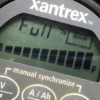Zeus does not like multihulls!

I’ve been giving this some thought and I have come to the conclusion that Zeus does not like multihulls. Why would I say that? Well, if you’re not up on your Greek mythology, Zeus is the God of thunder and lightning*, and Boat US tells us that multihulls are twice as likely to be struck by lightning than their single-hulled cousins.
Multihull sailboats are almost twice as likely to have a lightning claim as monohulls.
Given the stats, I’d also surmise that he’s not a fan of Florida (Thirty-three percent of all lightning claims are from the Sunshine State and the strike rate there is 3.3 boats per thousand. – Source), and perhaps not the Bahamas, and the region around Panama too.
We personally know at least a half dozen folks who have experienced lightning strikes, including our own incident on the Leopard. In every one of these cases, the boats that were struck were multihulls. Our new friends Jane and Ritchie just shared that their Leopard catamaran Panthera was hit just a week after they made their first insurance payment. They told us that they hadn’t even raised their sails yet! How’s that for bad luck?
Does any of the above mean that monohulls don’t get struck? Of course not. I just think that the stats point towards Zeus being a bit more of a monohull fan. In fact, maybe he was even looking out for us during this lightning-filled passage? Perhaps the favor of the Gods is something that is worth considering in the age-old multihull vs. monohull debate.

*If you’re not a follower of Greek mythology, feel free to select your own favorite thunder and lighting deity.



Did anyone suggest why?
* Lack of iron keel.
* Lack of large metal mass under water, even though it is, in theory, insulated?
* Less direct grounding path (it will not be straight down)?
Not to worried. I’m not in Florida and it’ November. Just the same, I like to be near taller boats in thunderstorms!
One of the links had some speculation as to why multihulls are more likely to be struck, but I don’t think anyone really knows definitively. They did say that statistically larger boats are more likely to be hit than smaller ones, presumably due to their taller masts.
That’s it, I’m sticking to small monohulls.
If you really want to play the odds get a powerboat, sans mast.
It seems logical to me then that a Trimaran has no chance of survival!! 🙂
One the boats that I mentioned having been hit was a large Tri.
From the Boat US Link:
“Several theories have been put forward including the lack of a keel, the increased wetted surface area, the larger footprint, the location of catamarans at the edges of marinas, the overall size of catamarans, and the average height of their masts. Unfortunately, we do not yet have enough data to be certain of what is driving this finding.”
I also wonder if a disproportionate portion of multihulls are located in the lightening zone. I’m perfectly willing to believe that all of the theories contribute.
Report from our friends who were struck… While they were in Florida, having repairs made, another storm came through. On the dock were many boats, lined up like this: cat, mono, mono, cat, cat, cat, mono, cat, etc. Random. The lightning skipped all the monos and struck several of the cats.